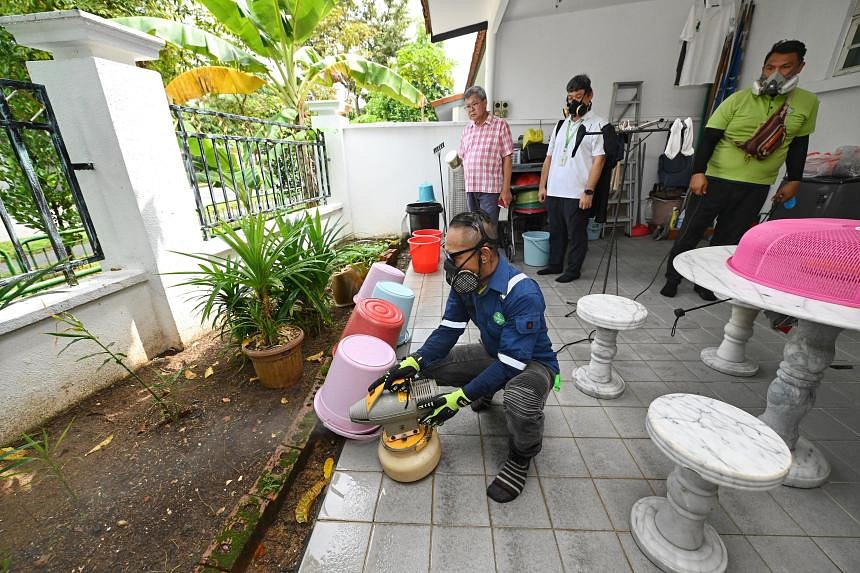SINGAPORE - Even though the number of dengue cases here has dipped in recent weeks, warmer weather in the coming months due to the El Nino phenomenon could see the situation getting worse, the National Environment Agency (NEA) warned on Thursday.
Singapore could see a large number of cases in 2024, it said.
“This was the situation in 2019 and 2021 when the year-end dengue case numbers were high, and the following years saw large outbreaks in Singapore,” the agency said, adding that “continued action and vigilance” remain critical.
While the number of weekly cases climbed to more than 300 in September, the number dropped in the first two weeks of October.
There were 266 reported cases between Oct 1 and 7, and 215 between Oct 8 and 14, according to the agency’s data.
With the 98 cases reported between Sunday and Wednesday, there were a total of 7,884 reported cases so far in 2023.
A total of 32,325 dengue cases were reported in 2022, the second-highest number in a year on record.
NEA previously said an increase in the number of cases caused by the DenV-1 strain of the virus, which used to be less prevalent, could result in a high level of transmission towards the year end.
Warmer weather caused by El Nino will make it more conducive for mosquitoes to breed, and this may extend the usual dengue peak period that falls between July and October, said Senior Parliamentary Secretary for Sustainability and the Environment Baey Yam Keng.
El Nino is a climate pattern associated with the unusual warming of surface waters in the eastern tropical Pacific Ocean.
“In recent weeks during NEA’s inspections, we found that there is a higher incidence of mosquito breeding in construction sites,” said Mr Baey. Checks found mosquito breeding grounds at 15 per cent of construction sites inspected, compared to 10 per cent of such sites previously.
He said that the authorities have given construction companies advice on how to prevent mosquito breeding.
But residential properties continue to comprise most of the mosquito breeding grounds found by NEA, making up about 70 per cent of such sites, he said.
Mr Baey was speaking to reporters on the sidelines of a visit to the Lentor area in Yio Chu Kang, a cluster with 83 dengue cases as at Wednesday.
Yio Chu Kang MP Yip Hon Weng noted that the area is surrounded by construction sites, including those for the North-South Corridor as well as condominium developments.
Grassroots leaders have been going around the Lentor area to educate residents on the dangers of dengue – which can cause fever, joint and muscle pain as well as nausea and vomiting – and how to prevent it.
Measures include ensuring that there is no stagnant water in their homes and applying mosquito repellent.
There were 49 active dengue clusters as at Wednesday, nine of which were large clusters with 10 or more cases, including a 112-case cluster in Club Street.
About 95 per cent of the dengue clusters have been closed since the start of 2023, NEA said.
Correction note: An earlier version of this article said that construction sites currently make up 15 per cent of mosquito breeding grounds found. The National Environment Agency has clarified that it found mosquito breeding grounds at 15 per cent of construction sites inspected.


